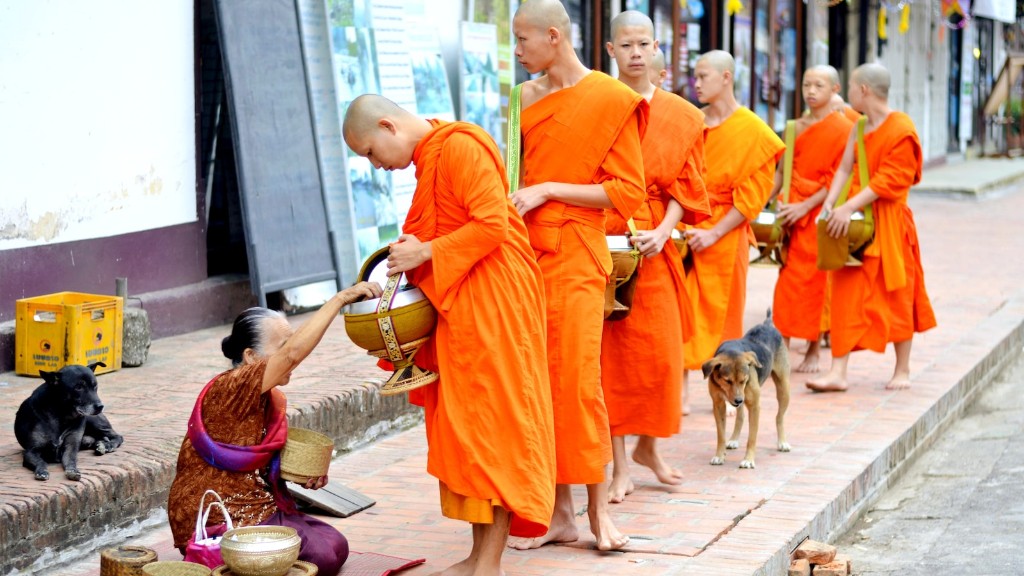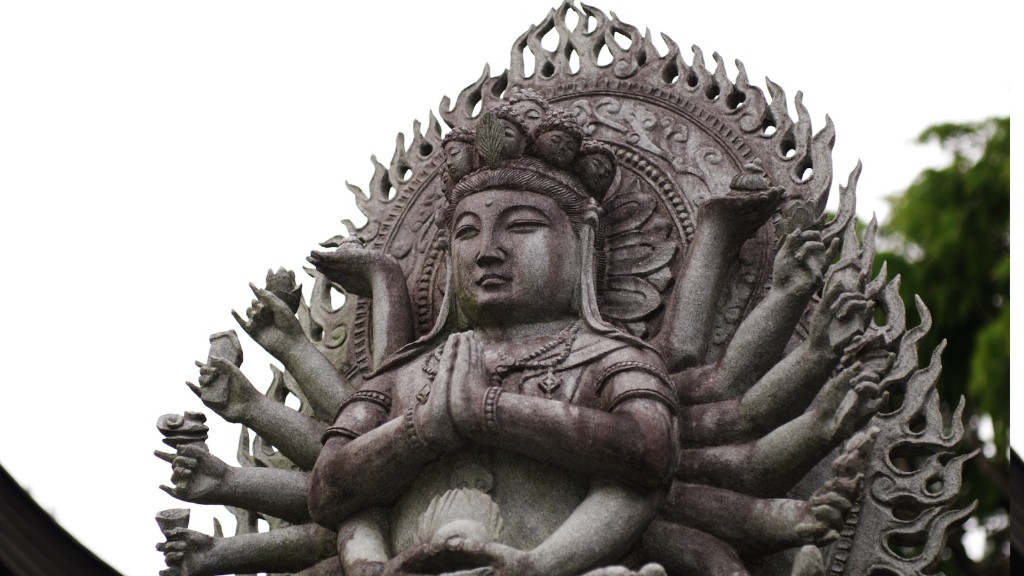God
Hinduism is one of the oldest religions in the world, with its origins in India dating back to 1500-1000 BCE. Its core belief system is based on the concept of a single God, Brahman. Brahman is the absolute and ultimate reality, existing throughout all of the universe, eternal and unchanging, in which all other deities are seen as merely aspects or manifestations of the one God. Hindus revere a pantheon of deities, each representing an aspect of Brahman. These include Vishnu, Shiva, and Devi, among many others. Despite the veneration of multiple deities, Hindus generally take an inclusive view of all paths to Brahman, knowing that all religious traditions originate in the same source.
Reincarnation & Karma
Another key belief system of Hinduism is the concept of reincarnation, or samsara, which is the belief that after death the soul will be reborn in another physical form. Hinduism teaches that this cycle of rebirth is governed by the karmic law, where the soul is judged according to how it acted in its last life, and then either rewarded or punished in its next life. This cycle can continue until the soul has attained spiritual enlightenment and liberation from the cycle.
Dharma & Caste System
Hinduism also espouses the concept of dharma, a term that refers broadly to moral law and duty. It encompasses the entire natural order, from cosmic principles to social behavior. Hindus believe that upholding and adhering to dharma is essential for order and harmony in the world. This philosophy has been applied to the social structure of Hindu society, which is divided into a hierarchical caste system with certain duties and privileges associated with each.
Yoga & Meditation
Hinduism places great emphasis on the practice of yoga and meditation as ways to attain spiritual enlightenment. Both are seen as essential to live in alignment with Brahman and to reach inner peace and harmony. Meditation is viewed as a path to ask the deepest questions, break free from illusion and ignorance, and to connect with the higher power. Various postures, known as asanas, are used in yoga to align the body, mind and spirit.
Scriptures & Sacred Texts
Hindu scriptures and holy texts such as the Vedas, Upanishads, Bhagavad Gita, and the Puranas are believed to be the words of the divine and are studied by practitioners of Hinduism as a means of spiritual understanding. These texts contain teachings on a variety of topics, from philosophy, to morality, to spiritual practices.
Rituals & Symbols
Rituals and symbols are important aspects of Hindu practice. Some of the common rituals that are performed by Hindus include the daily worship of their chosen deity or deities, attending festivals dedicated to various deities and performing various fire rituals. The mandala and the om symbol are two of the most common symbols in Hinduism, both of which hold great spiritual significance.
The Concept Of Moksha
The ultimate aim of Hinduism is to reach moksha, a state of union with Brahman. This is believed to be the highest aim of any human and is the goal of spiritual practice. Reaching moksha is not just a physical journey, but also a spiritual one, and it is only through meditation and devotion to the divine that it may be attained.
Sacred Sites & Pilgrimages
Hinduism places great importance on visiting and worshipping at sacred sites, particularly temples, which are believed to be abodes of the divine. A pilgrimage to these sacred sites is often seen as a necessary and important part of the spiritual journey, allowing devotees to draw closer to the divine and to witness firsthand the manifestation of the divine in the form of temples and images.
Agnosticism & Atheism in Hinduism
Though Hinduism is primarily theistic, with a significant number of believers actively engaged in religious practice, there is also a small but growing number of agnostic and atheistic followers of Hinduism who view the idea of a single God or creator as illogical or untenable. These believers are often drawn to the Hindu practice of meditation and yoga as a way of attaining a sense of harmony and connection to the universe, without needing to accept the belief in a single God or creator as a prerequisite.
Festivals & Celebrations
Festivals and celebrations are an important part of Hindu practice. Every festival has its own special significance, from honoring the gods and goddesses to celebrating life and the cycle of regeneration. These celebrations provide Hindus with an opportunity to come together in community, offering a chance to reconnect with beliefs and rituals, as well as each other.
Music & Art
Music, song and dance have long played an important role in Hindu worship. The use of classical ragas is a way to pay homage to and invoke the divine, while certain compositions have been used to express and evoke emotions related to the divine. Art has also been used as a way to express the divine and to depict various gods and goddesses.
Interfaith Interactions
Hinduism has a long history of interfaith exchange and dialogue with other belief systems from around the world. Such exchanges have seen Hindu philosophies influenced and enriched by other belief systems, and have also served as an important bridge between cultures. Hinduism and its openness to interfaith dialogue has had a profound effect on world culture.
The Traditional Role of Women
The traditional role of women in Hinduism is to act as guardians of the home and to be supportive of their husbands. Women were also often seen as equal to men in terms of religious practice and were expected to have a strong faith and connection to the divine. Women often played a prominent role in worship, with many temples and shrines dedicated to female deities. However, this role has changed in recent years, and there has been a greater emphasis placed on the rights of women in the Hindu faith.
Modern Influences & Reinterpretations
The Hindu faith has been influenced by recent social, political and economic developments, and many modern interpretations have emerged as a result. These interpretations have challenged traditional beliefs and behaviours, adding to the rich diversity within the Hindu faith. Some of the modern interpretations have met with resistance from traditionalists, while others have been embraced for their challenge to existing belief systems.


